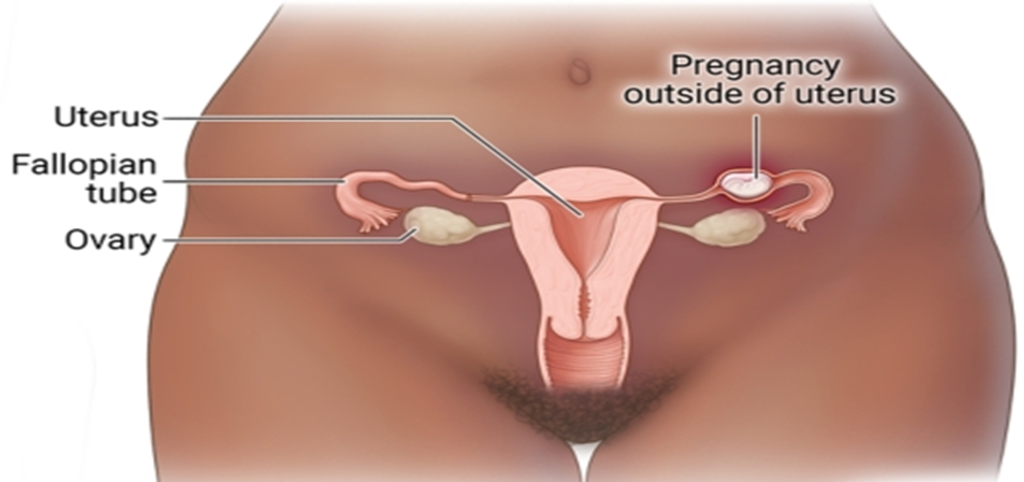In a story that sounds like it’s straight out of a medical thriller, a rare condition known as lithopedion has come into the spotlight, reminding the medical community of the extraordinary ways the human body can adapt to unexpected situations. Lithopedion, also known as a stone baby, occurs when a fetus dies during an abdominal pregnancy and becomes calcified within the mother’s body. This incredible condition, first documented in the 10th century, has again captured attention through the case of Estela Meléndez, a 91-year-old woman from La Boca, Chile.
A Shocking Discovery
Estela Meléndez’s case became known in June after she went to the hospital following a fall. Initially, doctors suspected she had a tumor, but a second x-ray revealed a shocking truth: the mass was not a tumor but a calcified fetus. Meléndez had unknowingly carried the stone baby for over 50 years. In a video interview with a famous news platform, she recalled, “The doctors said I had a tumor and that they needed to operate on me.” However, the X-ray showed something far more unusual.
Understanding Lithopedion

Lithopedion occurs when a fetus dies during an ectopic pregnancy, specifically an abdominal pregnancy, where the fetus implants outside the womb. Most abdominal pregnancies end in miscarriage, and if the fetus is small enough, the mother’s body can reabsorb the tissue without issue. However, if the fetus is too large, the mother’s immune system calcifies the dead tissue to protect the body from infection.
The calcification process is a defensive mechanism, forming a stone-like layer around the fetus, effectively isolating it from the rest of the mother’s body. This prevents the dead tissue from causing a potentially fatal infection. In Meléndez’s case, the stone baby caused occasional discomfort but did not lead to severe health issues.
A Remarkable Protective Mechanism
The calcification process is a testament to the body’s ability to protect itself. By turning the dead fetus into a stone baby, the mother’s immune system prevents the breakdown and absorption of potentially harmful tissues. This remarkable phenomenon demonstrates the lengths the body will go to ensure survival, even under the most unusual circumstances.
While lithopedion is extremely rare, it has been documented throughout medical history. Each case provides valuable insights into the body’s resilience and the complex interplay between pregnancy and the immune system. Despite the rarity of such cases, they underscore the importance of thorough diagnostic procedures when dealing with abdominal masses.
Meléndez’s Unique Case
What makes Meléndez’s case particularly unique is the location of the lithopedion. Typically, stone babies form in the abdomen. However, Meléndez’s stone baby formed inside her uterus, which is exceedingly rare. This uterine location of the lithopedion prevented her from having living children, a poignant aspect of her story.
Given her advanced age, doctors have decided not to remove the fetus, as the risks of surgery outweigh the potential benefits. Meléndez continues to live with her stone baby, a silent witness to the extraordinary events that unfolded in her body more than half a century ago.
Conclusion
The story of Estela Meléndez and her stone baby is a remarkable reminder of the unexpected paths life can take. For the medical community, it serves as a fascinating case study of lithopedion, highlighting the incredible adaptability of the human body. As rare as this condition is, each instance provides invaluable lessons and deepens our understanding of the intricate mechanisms that protect and sustain life, even in the face of the most unusual circumstances.
Disclaimer Statement: This information is from a third-party health news channel. The opinions expressed here belong to the respective authors/entities and do not reflect the views of Docquity. Docquity does not assure, endorse, or vouch for any of the content and bears no responsibility for it in any way. It is essential to take all necessary steps to ensure the information and content provided are accurate, current, and verified. Docquity disclaims any express or implied warranties related to the report and its contents.
References
How one woman carried a ‘stone’ fetus inside her for over 60 years [Internet]. Accessed on July 09, 2024. Available at: https://www.washingtonpost.com/news/speaking-of-science/wp/2015/08/05/how-one-woman-carried-a-stone-fetus-inside-her-for-over-60-years/
About Docquity
If you need more confidence and insights to boost careers in healthcare, expanding the network to other healthcare professionals to practice peer-to-peer learning might be the answer. One way to do it is by joining a social platform for healthcare professionals, such as Docquity.
Docquity is an AI-based state-of-the-art private & secure continual learning network of verified doctors, bringing you real-time knowledge from thousands of doctors worldwide. Today, Docquity has over 400,000 doctors spread across six countries in Asia. Meet experts and trusted peers across Asia where you can safely discuss clinical cases, get up-to-date insights from webinars and research journals, and earn CME/CPD credits through certified courses from Docquity Academy. All with the ease of a mobile app available on Android & iOS platforms!







